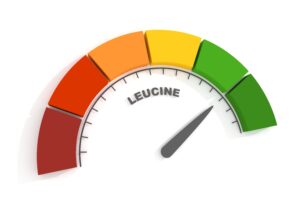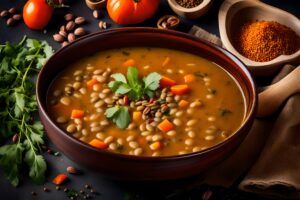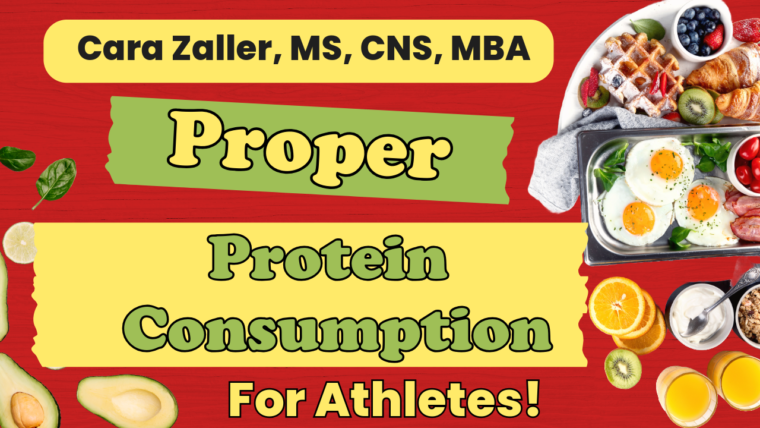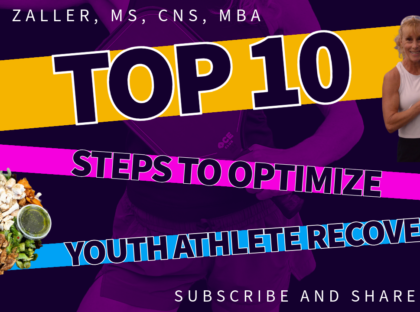Protein is an essential macronutrient that plays a crucial role in the growth and repair of muscles in the body. This makes it particularly important for youth athletes who are actively participating in sports and physical activities. To ensure optimal performance and recovery, it is recommended that youth athletes consume 2 grams of protein per kilogram of lean body weight every day. This also means that they should aim for at least 25-30 grams of protein per meal.
When it comes to protein sources, there is a significant difference between animal-based sources and vegan sources. This is particularly the case with the vital amino acid, leucine. Leucine is an essential amino acid that plays a key role in muscle protein synthesis. This is the process by which new muscle tissue is built. Animal-based sources of protein, such as meat, poultry, fish, and dairy products, are higher in leucine when compared to plant-based sources of protein.
Failing to hit the target protein intake can have negative consequences on both performance and injury risk for youth athletes. Without an adequate amount of protein, the body may not be able to repair and build new muscle tissue effectively. This leads to decreased muscle strength and endurance. In addition, inadequate protein intake can also increase the risk of injuries, as muscles may not be able to recover as quickly after strenuous physical activity.

Leucine is the most vital amino acid for muscle protein synthesis.
Studies show that you need about 2.5 gm of leucine per meal to initiate muscle protein synthesis. It’s much easier to obtain with this animal sources vs. vegan. This isn’t to say a vegan cannot obtain enough leucine, but it is does require significantly more vegan protein to do so. This also leads to additional calories, which may or may not be desirable.

6 ounces of chicken gives us 2.5 grams of leucine…the perfect amount for muscle growth!
For example, a 6-ounce serving of chicken breast (2.5 grams of leucine) has 280 calories. A vegan athlete would need to eat 2 cups of cooked lentils, which is 560 calories. This equates to twice as many calories, or even more, depending on the type of lentil and what it’s combined with.

2 cups of lentils may yield the same amount of leucine as 6 ounces of chicken, but the overall calorie load is double!
Research suggests that consuming at least 25-30 grams of protein per meal is necessary to maximize muscle protein synthesis. As demonstrated above, animal-based sources of protein tend to be far higher in leucine and other essential amino acids. This makes them more effective at stimulating muscle protein synthesis compared to plant-based sources of protein. To help youth athletes meet their protein targets and optimize muscle protein synthesis, here is a sample one-day menu for both a vegan athlete and an animal-based protein athlete who weighs around 130 pounds:
Vegan athlete:
– Breakfast: Smoothie made with 1 scoop of plant-based protein powder, 1 cup of almond milk, 1 banana, and 1 tablespoon of almond butter (approximately 25 grams of protein)
– Lunch: Quinoa salad with mixed vegetables, chickpeas, and tofu (approximately 30 grams of protein)
– Dinner: Lentil curry with brown rice and steamed vegetables (approximately 25 grams of protein)
Animal-based protein athlete:
– Breakfast: Greek yogurt with berries and almonds (approximately 25 grams of protein)
– Lunch: Grilled chicken salad with mixed greens and a vinaigrette dressing (approximately 30 grams of protein)
– Dinner: Baked salmon with quinoa and roasted vegetables (approximately 25 grams of protein)
In conclusion, hitting the target protein intake each day is crucial for youth athletes to support optimal performance, muscle growth, and recovery. While both animal-based and plant-based sources of protein can be part of a healthy diet for athletes, it is important to consider the differences in leucine content and muscle protein synthesis between the two types of protein sources as well as the total amount of calories consumed to reach the necessary protein targets.
Don’t Be a Meathead is protected by Copyright laws. If you wish to post any content from www.dontbeameathead.com, you must obtain express (written…this can be email) permission before doing so. We love sharing important information to help people and we do appreciate your respect for our intellectual property.





